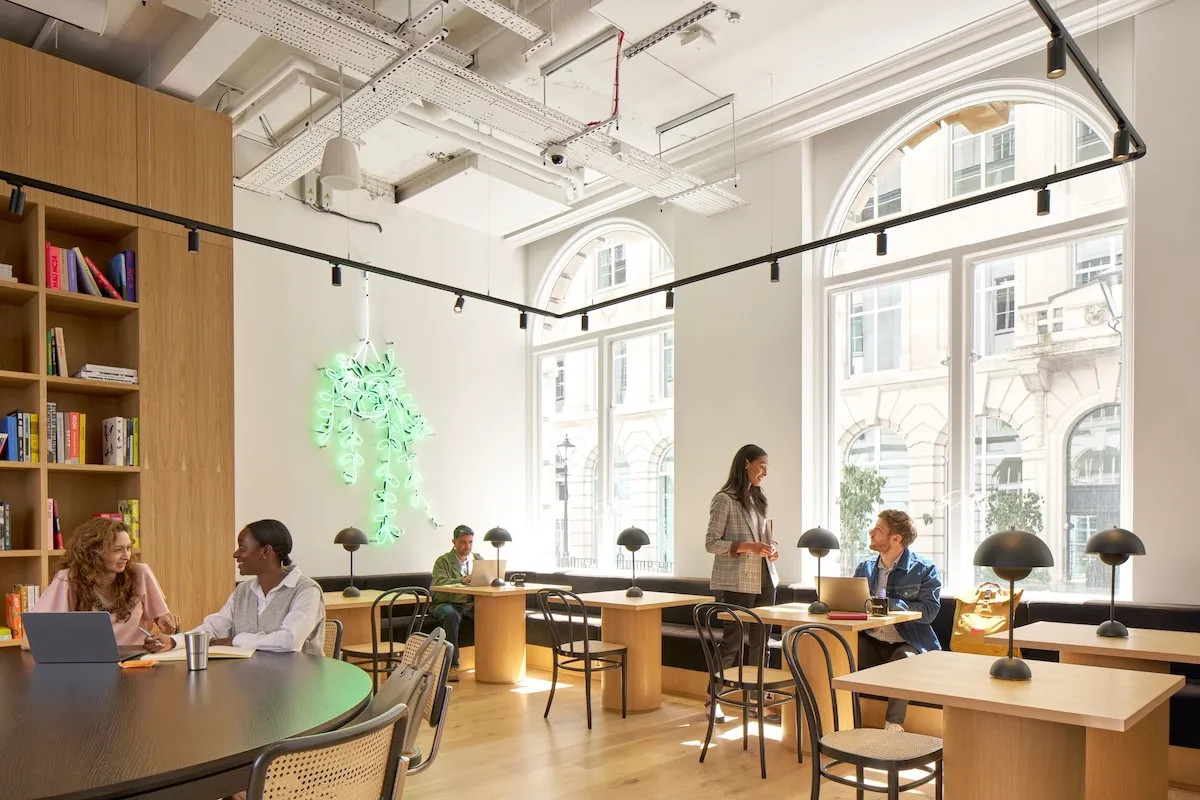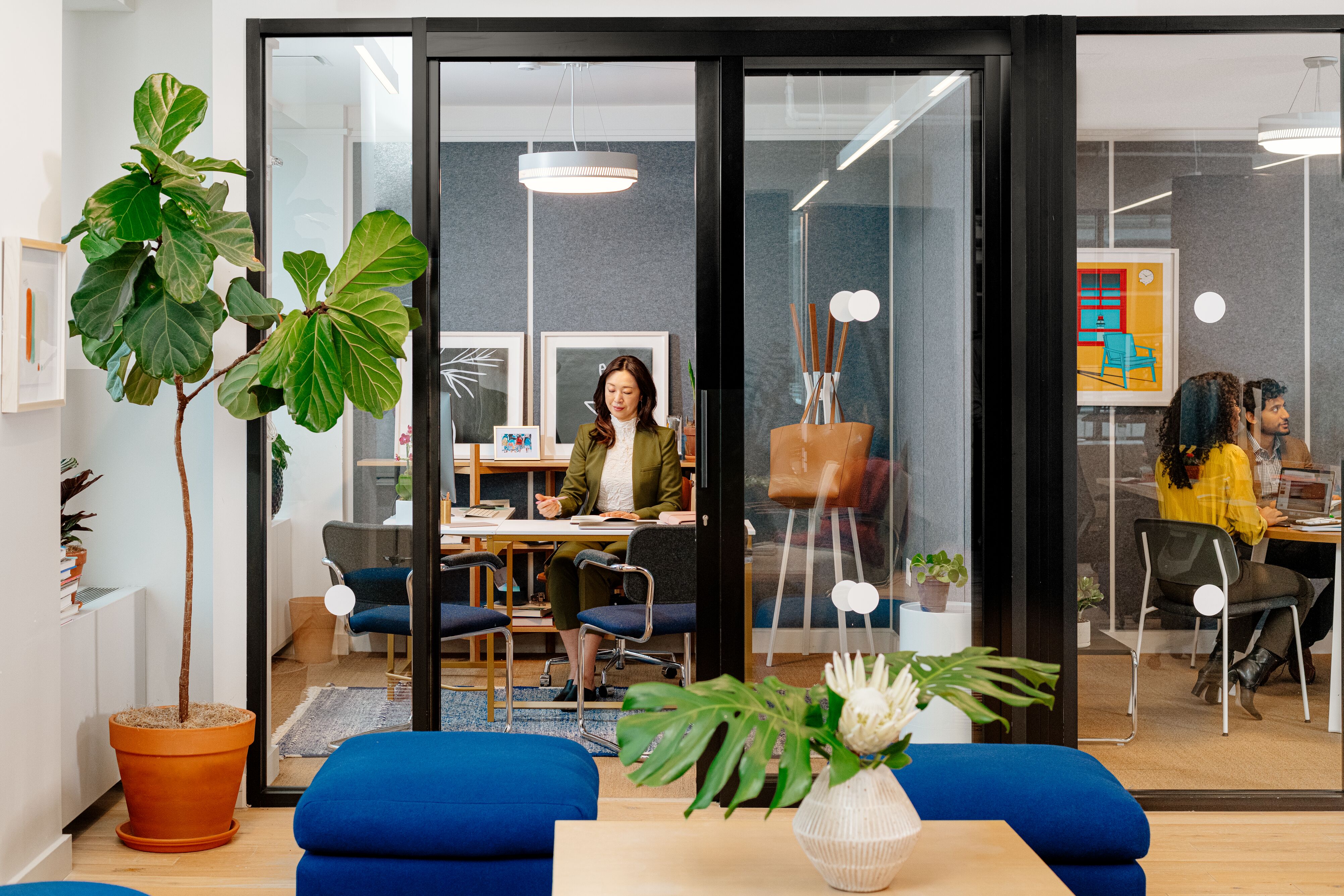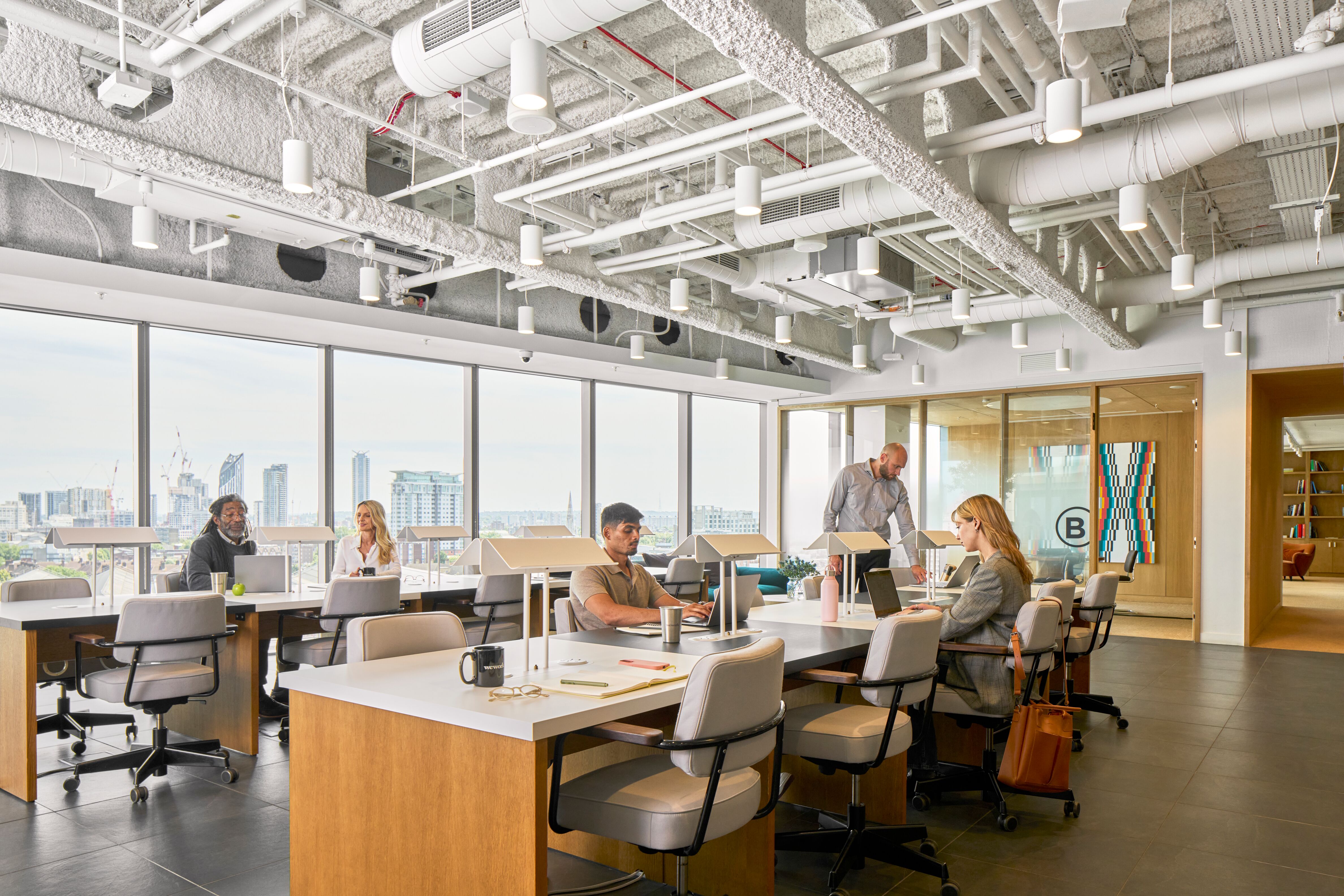The COVID-19 pandemic hit Latinx communities especially hard. After more than a year of incredible loss and struggle, WeWork employees came together to celebrate Latinx and Hispanic Heritage Month from September 15 to October 15, offering stories of gratitude, community, and triumph.
To honor the month, the employee community group We of Color hosted a virtual panel centered on gratitude, a key WeWork value. The discussion was moderated by Amanda Gonzales, a community manager in St. Louis, and featured four Latinx and Hispanic WeWork employees—Alexandra Campbell, an area director in Lima, Peru; Yadira Hurtado, a manager of health and safety in Los Angeles; Roger Solé, former chief marketing officer; and Marcelo Claure, former executive chairman—who shared stories about their cultural upbringing and how it shaped their lives, their identities, and their careers.
Embracing difference
Campbell struggled with feeling different throughout her life. While Campbell was born and raised in Peru, she says she doesn’t have typical Latina features. Because of her light skin and blonde hair, Campbell is often met with disbelief and suspicion when she tells people that she’s Peruvian. “I am immediately catalogued as ‘la gringa,’” she says.
In recent years, Peru started to become a world culinary capital and its tourism industry began to boom. The influx of white Americans and Europeans led to Campbell being mistaken for a tourist in her own country. When she and her friends would sit down at restaurants, Campbell would often be given an English menu to order from. As a proud Peruvian, it bothered Campbell to be seen as anything other than Latina.
The best way to honor our heritage is to show others how different we are, how diverse we are.
Alexandra Campbell, WeWork area director in Lima, Peru
“I wanted to naturally represent my background, my history, and who I was,” Campbell says. “There were so many generalizations and biases toward me because of my non-Latin look. This made me angry.”
It was at work that Campbell started to realize that her language and cultural background were not deficits in her life, but valuable assets that she could use to propel her career. This became evident when she moved to Miami in 2005 and started working in retail. Now surrounded by Latinx people from all over the world, Campbell was able to use her Spanish-speaking skills and cultural knowledge to better navigate her work.
After experiencing professional success, her personal feelings about not looking Latina enough began to change. She began turning awkward interactions with people into teachable moments about the beautiful array of races, ethnicities, languages, and cultures that make up Latinx communities around the world.
“It gave me the chance to actually change people’s minds and teach them that we don’t all look the same,” Campbell explains. “The best way to honor our heritage is to show others how different we are, how diverse we are.”
Campbell’s days of being “bitter” about not looking Latina enough are now behind her. She no longer gets upset by people’s misconceptions. Campbell is proud of her Peruvian heritage and appreciates the positive impact her roots have had on her career.
“I’ve worked in worlds where empathy and open-mindedness are key,” she says. “By coming from a very rich cultural background, I felt that I naturally carried this ability to understand other points of view.”
Cultural strengths in the workplace
While many cultural and systemic barriers still exist for Latinx and Hispanic people in the workplace, Solé said his cultural upbringing provided him with skills that were later necessary in his career.
“As a marketer and a CMO, you need to be very connected to what people think, how they behave, and their needs,” says Solé, who is originally from Spain. Living in different parts of the world throughout his life made him a more open person. This openness then allowed him to connect with people more naturally and insightfully.
Claure agrees with the importance of connection. WeWork’s former executive chairman, who is Bolivian, said that he owes a lot of his success to those who took chances on him early on in his career. He has often felt like an underdog in business, and WeWork is his most recent underdog success story.
At times it seemed Claure was the first Latino to achieve certain milestones, he said. (Claure is also chief executive officer of SoftBank Group International and former executive chairman of Sprint.) Now he sees himself as the representation in the workplace he didn’t see at the beginning of his career. His heritage is an ever-present element in his life. He makes a point to keep it thriving in his children’s lives as well, most recently by taking one of his daughters to a Marc Anthony concert.
Appreciating tradition
Latinx cultures are steeped in tradition. But some traditions are not as obvious as others. Yadira Hurtado, a manager of health and safety in Los Angeles, learned this from her yearly Día de los Muertos celebrations. In 2013, Hurtado’s younger brother passed away unexpectedly in a car accident. At his funeral, Hurtado says her Mexican and American cultures “collided.” Growing up in L.A., Hurtado expected to attend a traditional American funeral much like the ones she had seen in the movies growing up. She was surprised when her Mexican family celebrated at her brother’s viewing with food, music, and laughter.
“It was kind of like a party,” Hurtado says of her brother’s viewing. Though caught off-guard at first, Hurtado later learned that the celebrations after her brother’s passing were steeped in thousands of years of tradition.
“The Aztecs honored the dead and held a cyclical view of the universe,” Hurtado explains. “They saw death as an integral part of life.”
Every year around Halloween, Hurtado now honors her brother during Día de los Muertos or Day of the Dead celebrations, a two-day-long holiday where people celebrate the life and death of loved ones through offerings of joy, love, and respect. While the holiday has been practiced for thousands of years by Indigenous peoples, such as the Aztecs, it is now celebrated around the world mostly by Mexican people like Hurtado. The holiday gained recent mainstream attention when it was depicted in the 2017 Disney movie Coco.
For Hurtado, honoring her brother’s life every Día de los Muertos means cooking his favorite foods, decorating a beautiful altar adorned with photos of him, and playing his favorite music. “He was such a lively person,” Hurtado remembers. “He loved music, he loved to dance.”
She sees parallels between this ancient Indigenous practice and WeWork’s value of “Be Human, Be Kind.”
“Everyone has their own personal story,” Hurtado says. “You might not always know their story, but just showing up with grace and an open heart and an open mind really counts for a lot.”
J. Agrelo is a freelance journalist in Chicago.
Rethinking your workspace?










